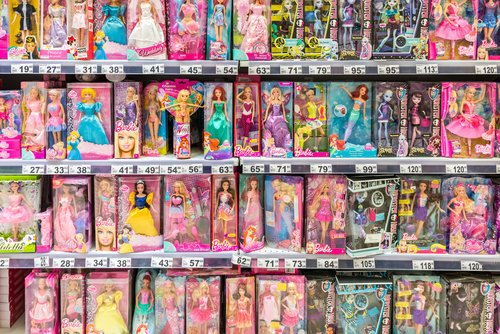Three Human Rights Issues In Retail That You Might Have Overlooked
February 6, 2017
Blogs Business and Human Rights
By Marissa Saretsky
Stuff. Stuff is what a move is made of. I’m in the middle of a move to a new house, whereby I am having to take stock of my vast collection of retail products, choose what to keep and discard, place them carefully (or not!) into moving boxes, ensure that they are transported from Point A to Point B, and then put them away in an organized (or not!) manner.
While this exercise was not an intentionally timed refresh-your-life-in-2017 project, I must say it has been a mostly welcome one. It has prompted the realization that there is so much more to the human rights profile of consumer products than how they were made in factories. Having worked for a global retailer on human rights management, I know first-hand that it can be challenging to think beyond the factory walls. With this in mind, here are three human rights issues that retail companies might overlook:
1. Gender discrimination
On the heels of the Women’s March and as I packed up baby clothes and toys, my mind was brought back to recent outcries from consumers about children’s toys being specifically labeled for boys and girls. Beyond encouraging gender stereotypes, discriminatory practices such as these can deprive children of their equal access to certain toys, colors and designs— and as a result, may limit future opportunities by suggesting norms, such as ‘scientist’ for boys and ‘princess’ for girls. Retailers have the opportunity and responsibility to take an active role in preventing this kind of discrimination, especially for those at such a young age.
Some retailers have demonstrated leadership on this issue. Target was quick to reflect on its policies and take a stance by announcing its plans to get rid of gender-based labeling in the children’s bedding and toy aisles. This kind of action reflects a growing need for retail’s discernment and strengthening of its advocacy on gender equality.
2. Right to Work
This move has required more than one trip to the hardware store for a collection of powerdrill, lighting, and closet organization solutions. As I perused the aisles one day, I noticed customer after customer engaging with staff members on their DIY projects. It brought to the top of my mind the recent announcement by Lowe’s Home Improvement that they will start using “Lowebots” in their stores to handle customer inquiries. If the robots are successful in addressing customer needs, what will happen to its employees?
Similarly, at the end of last year Amazon opened a small grocery store in Seattle where there is no checkout line. Customers simply pick up the items of their choice, and walk out of the store. Amazon has developed technology to automatically track the items taken through computer vision and deep learning—thereby eliminating the need for tellers.
While technological advances are making our lives easier and more seamless on a daily basis, and while many of them (robots!) are on an entirely new level of cool, let us not forget that securing good jobs in the age of automation will only become more difficult. Companies must strike a balance between introducing efficiencies and eliminating much needed jobs, because not only should all have the right to work, but consumers will no longer be able to consume if they cannot sustain their employment.
3. Working Conditions in Transportation and Logistics
With my possessions packed and loaded in the truck, I thought about how each and every item I decided to bring with me had probably traversed the planet to make it into my home.
Gender discrimination and the right to work touched on human rights issues at the product design and point of sale levels, but transportation and logistics is yet another often overlooked area where human rights violations and risks can occur. Although it receives little media coverage, the sea freight industry has faced allegations of trafficking, forced overtime, withheld wages, and unsafe working conditions, to name a few. Land transportation, and more specifically the trucking industry, has faced similar challenges.
Retailers focus much of their human rights efforts at the manufacturing level, and often stop short of tracking risks in the transportation and distribution of finished consumer products. This presents yet another opportunity for companies 1) ensure that their codes of conduct with transportation suppliers include the same human rights provisions and standards as with manufacturing suppliers 2) increase the monitoring of working conditions at this level of the value chain and 3) remediate when human rights violations are found.
Corporate respect of human rights should be embedded in every aspect of a company’s operations, and many of the less evident risks surface during more formal human rights due diligence, a basic expectation articulated by the UN Guiding Principles on Business & Human Rights. As witnessed while working for a global retailer, so much of corporate responsibility efforts in retail focus on preventing the next Rana Plaza. However, my move has reminded me that the ability to impact human rights extends well beyond the management of supply chain risks, and that we as consumers can play a role by asking companies to take proactive steps in this direction.
